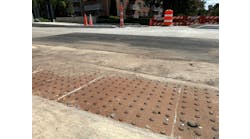The North Carolina Department of Transportation (NCDOT) will begin considering mileage-based user fees (MBUFs) this week as an alternative future source of revenue for transportation projects. MBUFs are one of several options being considered by the state in the face of rising population and falling gas-tax revenue.
North Carolina is certainly not the first state to consider MBUFs—10 other states have expressed varying degrees of interest in the idea, with some going as far as pilot programs.
At its current standing, NCDOT expects to face a $1.7 billion shortfall in state gas tax revenue over the next 10 years. Lawmakers have had discussions about raising the gas tax but are weary of doing so, as North Carolina already has one of the highest gas tax rates in the nation.
Implementation of an MBUF could take one of several proposed forms, including:
- A percentage point increase on the highway use tax on car sales, generating an extra $170 million annually;
- Congestion pricing for tolling. A recent report suggested a tax of one-half cent per mile on cars could generate an extra $495 million annually. Under this plan, trucks would be charged a one-cent-per-mile fee.
The same report—written by former state highway administrator Larry Goode and Leigh Lane of the North Carolina State University Institute for Transportation Research and Education—suggested that NCDOT launch a pilot program for the concept, similar to other such programs across the country.
No timetable has been given for establishing alternative transportation funding sources.


